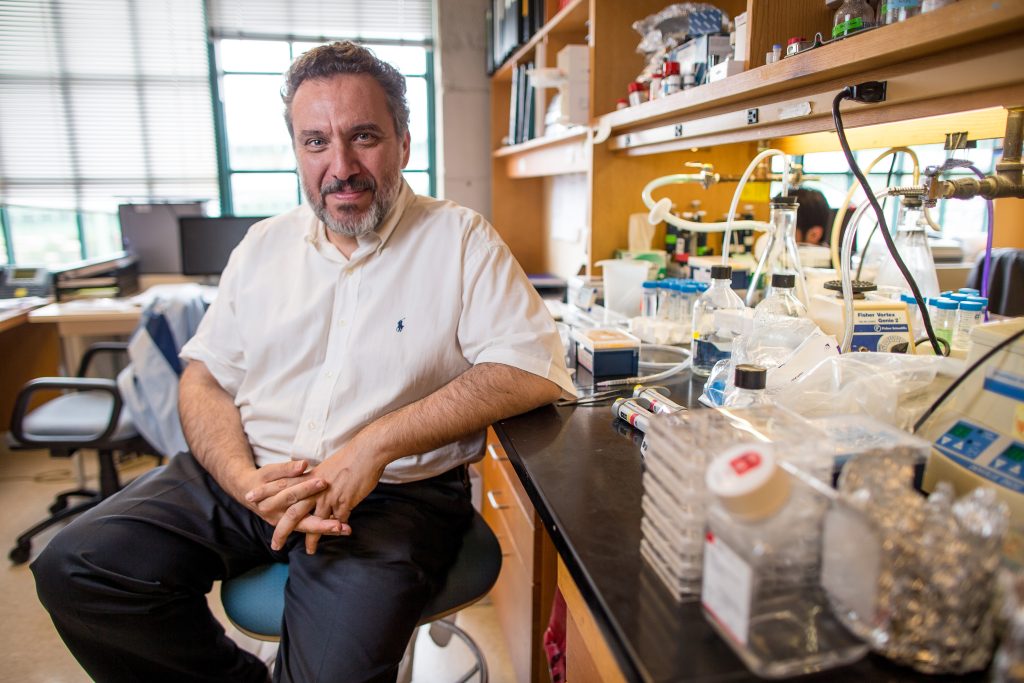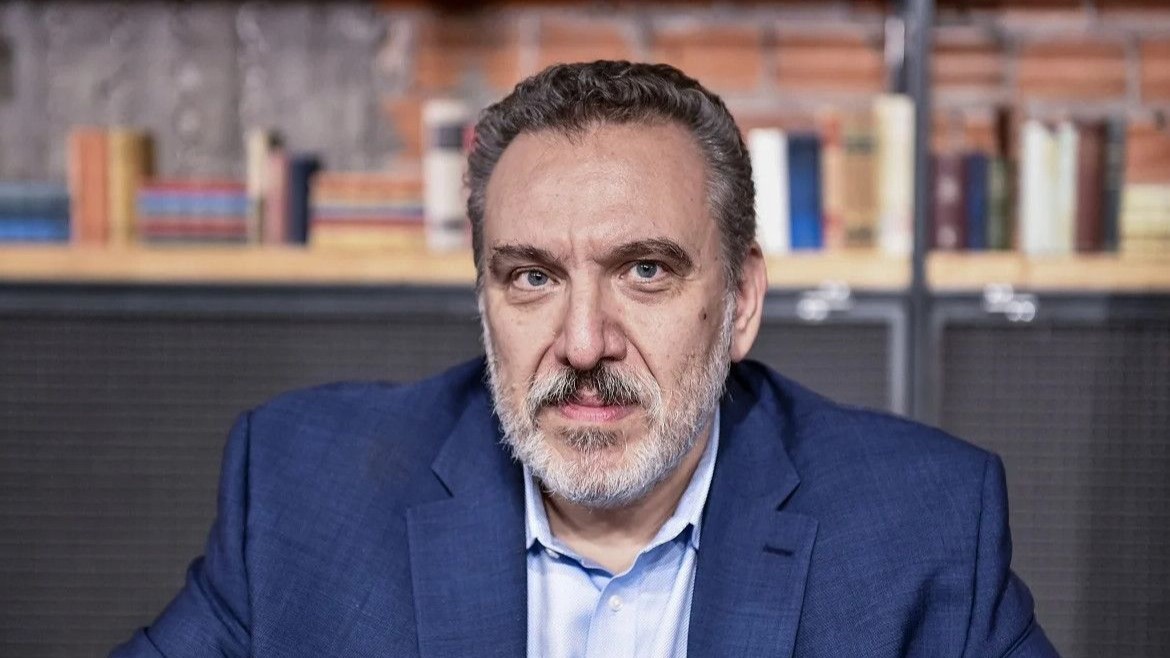By Ilias Karagiannis.
The Associate Professor of Medicine at Harvard University and Clinical Oncologist at the Massachusetts General Hospital Cancer Center, Othon Iliopoulos, heads the SYRIZA party’s state ballot. A few days before the upcoming national elections in Greece, Mr Iliopoulos speaks to The Greek Herald and stresses that politicians must win back the trust of the people.
The distinguished scientist was one of Alexis Tsipras’ advisors during the COVID-19 pandemic and accepted his honorary invitation to enter the arena of politics.
“I am very honoured by this position and I would like to thank the SYRIZA leader for his confidence and political appreciation,” Mr Iliopoulos told The Greek Herald.
“I accepted it with a sense of responsibility to all members and supporters of SYRIZA and to the expatriate Greeks I am called to represent.
“My love for Greece and my desire to contribute to the country that raised me and gave me free education was a strong motivator to accept such an offer.
“You know, I’m a doctor and a researcher. I never saw my profession as a career, I chose it in order to serve the sick and to contribute to the advancement of knowledge so that one day I would feel satisfied I had achieved what I wanted to offer in life.
“Through medical practice, I feel strongly that the health outcomes needed to lead a good life is not achieved only on an individual level. Social measures are also needed to deliver results. These decisions are political.”
A Greek of the diaspora himself, we ask Mr Iliopoulos about the restrictions in the diaspora voting law and the limited participation of expatriates.
“The limited number of participants is the result of criteria set by the law. The most important is the condition that the expatriate must have lived in Greece two of the last thirty years. Citizens who left many years ago do not meet this criterion,” Mr Iliopoulos said.
“Citizens who left Greece recently are still registered at polling stations in Greece. SYRIZA proposed solutions that apply in Italy, Portugal and other European countries, namely that all Greek passport holders vote for a certain number of seats in Parliament.
“Another aspect of this phenomenon of limited participation that scares me the most is that I see a pervasive political reservation of the world, a frustration that “nothing will change.” This attitude is wrong in my view and leaves the fate of the many in the hands of a few. We need to regain people’s trust in politics and participation. The ancient Greeks considered participation in the Commons a virtue.”

Health as a priority:
The choice of Mr Iliopoulos as SYRIZA’s top candidate preference in the state ballot gave birth to thoughts that Greece’s National Health System (NHS) would be a party priority.
“The pandemic… proved that in difficult times, it is only the public health system that will save us. The private system first protected itself and its profit and invested only in the market opportunities that the pandemic gave it – as the high prices of diagnostic laboratory tests in Greece showed,” Mr Iliopoulos said.
“Health is a primary good and public health in the broadest sense of the term is essential in every country.
“Dealing with a pandemic is not easy, but not hiring the necessary number of doctors, which the NHS desperately needed during the worst phase of the pandemic, is a fatal choice. Not opening Intensive Care Unit’s everywhere was also a fatal choice. But unfortunately, these are not random mistakes. They are decisions aimed at rapidly degrading the NHS to be replaced with a private health provision system.
“My position on the ground undoubtedly sends a message that health is an urgent priority of the SYRIZA government.
“The SYRIZA government will quickly, and in a deliberate and targeted manner, make up for the huge shortages of medical, nursing and secretarial staff in hospitals. It will expand primary health units, it will expand the health centres in every city, it will give strong incentives for doctors to go to the islands, it will put dental care within the public health system. Our health program is thought out in detail and is achievable.”
We mentioned to Mr Iliopoulos that we were surprised a prominent medical professor decided to leave his important research for politics.
“You know Bertrand Russell won two Nobel Prizes, one for biochemistry and one for his fight for peace. Einstein was a political activist. The leading German pathologist, Rudolf Virchow, fought to reduce poverty in order to eradicate tuberculosis. Noam Chomsky is not only a linguist, but also one of the most prominent political thinkers and activists in America,” he answered.
“I’m not comparing myself to them, of course, but they are examples that show how close science sometimes brings you to the willingness to participate in changing a political system. As for my research, I will not give it up but it will certainly slow down.”

What’s at stake in the upcoming national elections?
In Greece, there is an informal contest to answer what is at stake in the upcoming elections. Stable governance or justice, democracy and transparency?
“Stable governance cannot be based on increasing the gap between rich and poor, squeezing the purchasing power of the world, turning Greece into a tourist state, maximising the profit of financial institutions,” Mr Iliopoulos said.
“This is not stable governance, this is a recipe for economic and social crisis. Even conservative economists are sounding the alarm. Compression brings anger and extreme phenomena. I remind you that we arrived at the crisis of 2008 not because the benefits of the welfare state were improved, but because the market and the control of the banks and their investment strategy were completely deregulated. Transparency is a political obligation.
“The right to speak on the phone without being monitored is an elementary principle of democracy and respect for everyone’s personal life. The key is to protect the basics.”
We asked for Mr Iliopoulos’ view of SYRIZA leader, Alexis Tsipras.
“I personally met Alexis Tsipras through our close cooperation during the time of the pandemic to protect Greece and as a member of the Advisory Group he set up. He impressed me,” Mr Iliopoulos said.
“He is honest and tells the truth even when he knows that “electorally” it will hurt him. He’s not in politics to make money or rule. He sees it as a means of contributing to a better world. I guess that sounds romantic, but it’s real. He is a young charismatic politician with a vision and his opponents recognise this abroad.”
What about a message for the Greeks of Australia?
“Expect that the SYRIZA government will modernise Greece. That it will reduce bureaucracy, consolidate democracy, build a state that will stand by the citizen and inspire confidence. A state that will ensure high quality health and education for free, because these are not commodities but goods that every citizen should enjoy,” Mr Iliopoulos said.
“A state that the expatriate Greek will trust to invest in and that will inspire him to help in his path. Greece needs the experience of expatriates, their help, their trust. The expatriates are a capital for Greece that the SYRIZA government will extend its hand to for a mutual cooperation.”

